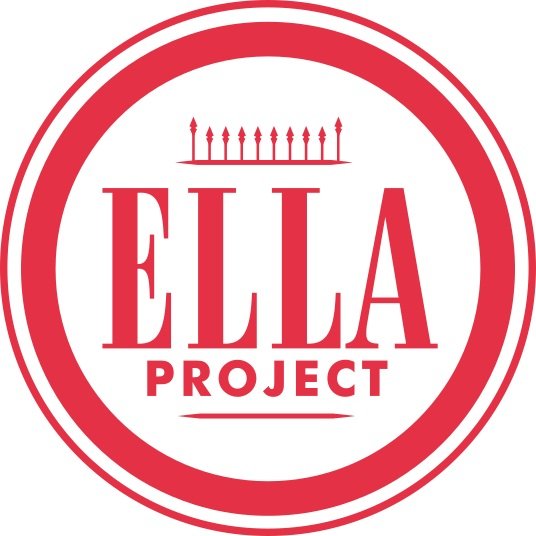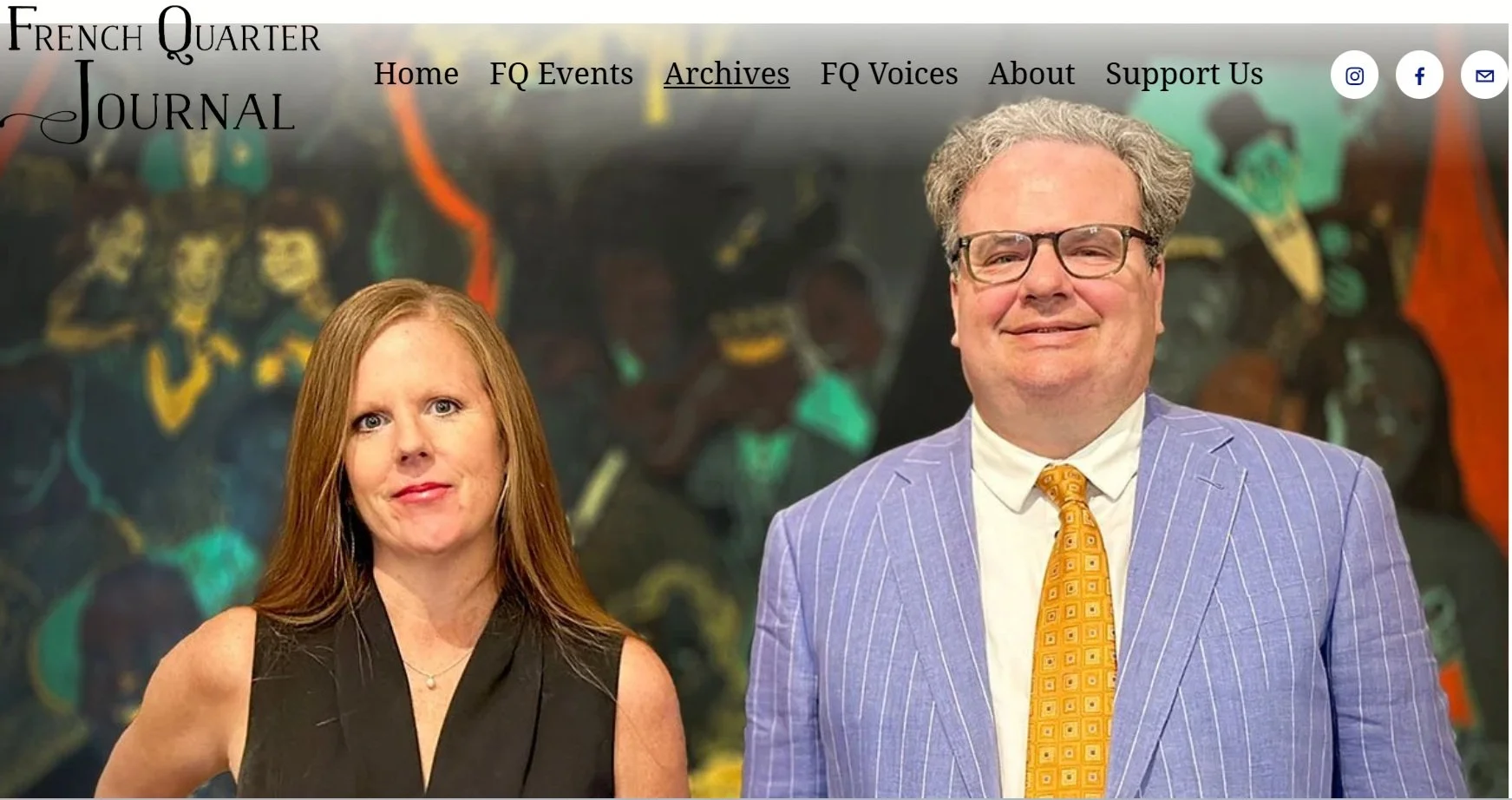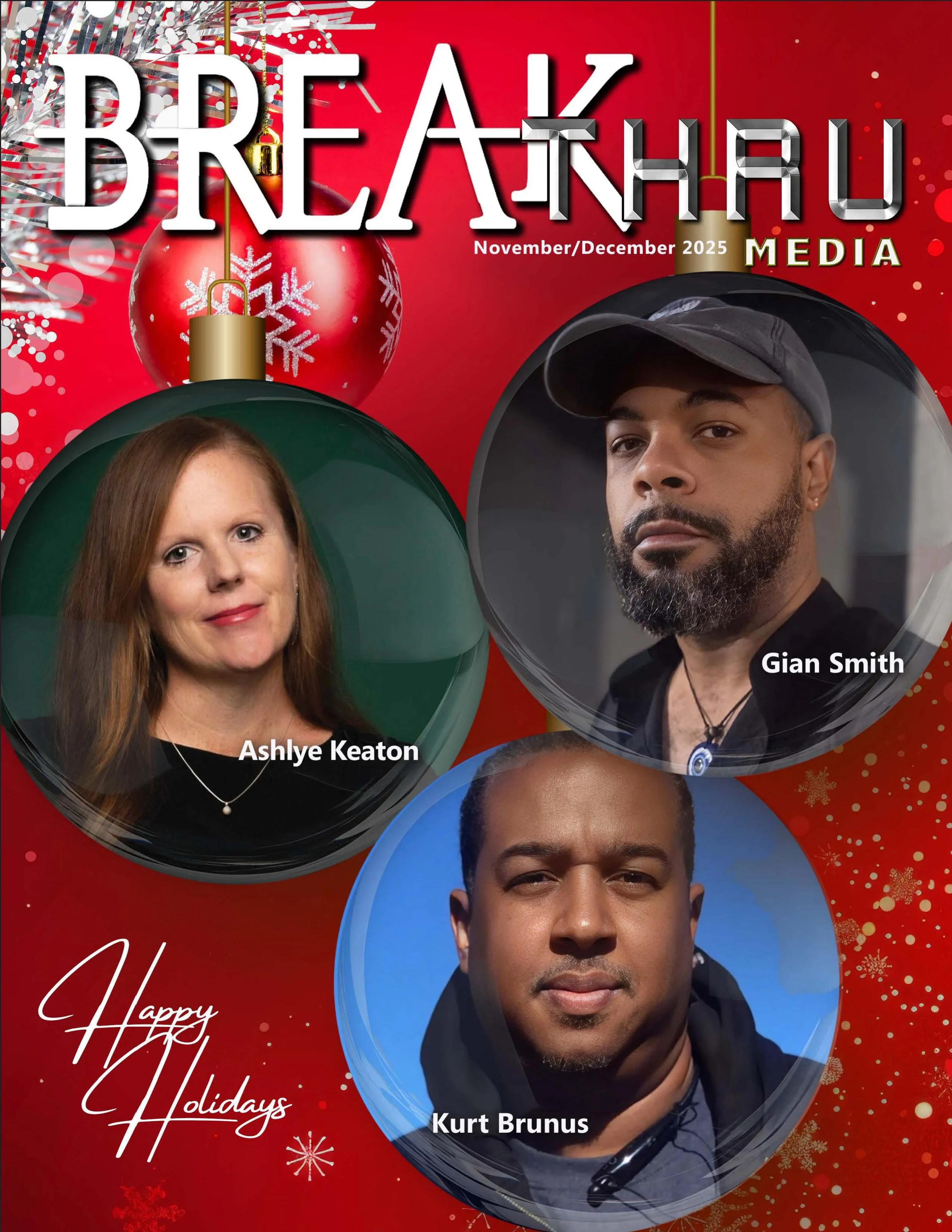Ella In The News
November 2025For two decades this pro bono legal advocacy group has been helping Crescent City creatives navigate the business world—and it’s paying off.
– by Doug Brantley
For their November/December issue, our Co-Founder Ashlye Keaton sat with Dean M Shapiro of BreakThru Media to discuss her career, the evolution of The Ella Project, and how to support the culture of New Orleans. The issue is available now, and you can read it online here.
On September 9, 2025, The Ella Project hosted the Mayoral Forum on Local Culture, moderated by Ashlye Keaton along with Don Bartholomew and John Stanton. The Gambit’s Jake Clapp recaps the event here.
The Ella Project’s Ashlye Keaton and the City of New Orleans’ Howie Kaplan talk to Eric Paulsen of WWLTV in May 2024 on the importance of the New Orleans Music Census and getting the pulse of the music community of New Orleans.
The Ella Project’s Co-Founders Ashlye Keaton and Gene Meneray join Great Day Louisiana’s Malik Mingo to discuss working with musicians to protect their work and grow our Louisiana culture.
Spotlight of The Ella Project by the Copyright Alliance, February 2024.
Viva Nola’s Axel “LOLA” Rosa talks to Lou Hill, Gene Meneray and Bri Whetstone about The Ella Project and Crescendo for their October 2023 Issue.
Read the whole issue here.
The Ella Project’s Ashlye Keaton and Gene Meneray talk to Carl Arredondo of WRBH 88.3 FM in September 2023 about The Ella Project, our current programming, and how you can get involved.
WWL’s Eric Paulsen talks to Lou Hill and Bri Whetstone about the New Orleans Music Economy and the 2023 Crescendo Series.
Led by Water Seed co-founder and drummer Lou Hill and attorney Bri Whetstone, this year's Crescendo includes workshops on intellectual property; publishing and revenue streams; working with labels and covering master recordings and record deals; streaming royalties and performing rights organizations; music contracts and band agreements; gigging at festivals; and releasing, pitching and monetizing your music.
Historian, educator and event planner Melissa A. Weber points out that local artists can benefit from “several endeavors that are invested in educating musicians about the business of music,” she says. “My favorites include workshops and legal clinics presented by the Ella Project, a nonprofit that offers pro bono legal assistance, arts business services and advocacy to the local cultural community;
Ashlye Keaton, Activist of the Year 2022
For over 20 years, Avenue has been honoring philanthropists, volunteers and community activists — in fact, more than 85 people have been recognized for their efforts as Activists of the Year.
This year’s class includes Ashlye Keaton, Ernest Johnson, David Sherman, Claire Thriffiley and Isaac Toups, whose focuses align from art in hospitals to the juvenile justice system.
WWL-TV September 2022
Eric Paulsen sits down with Crescendo lead presenter Lou Hill to discuss the New Orleans Music Economy and the upcoming Crescendo workshop.
GAMBIT August 2022-Meet New Orleans’ Night Mayor
The effort had been in the works for several years: Ashlye Keaton, a New Orleans attorney who specializes in entertainment law, and the nonprofit The Ella Project have pushed for the office for years, along with former Council Member Kristin Gisleson Palmer and OffBeat publisher Jan Ramsey, who wrote the 2017 column, “Does New Orleans Need a Night Mayor?”
MAY 2022 WWL TV
The Ella Project’s Board President Chief Howard Miller, longtime friend Queen Rukiya Brown and our Co-Founder Ashlye Keaton talk to Eric Paulsen about the culture, the importance of copyright, and how important the rights of the creators are to furthering the culture.
OffBeat Magazine, January 2021
On the details of live entertainment regulation, there are solid suggestions and also several issues, such as overly restrictive limits on frequency of and timing events and requiring permits for private home “porch” concerts (New Orleans loves its permits, enforcing them, not so much), but what’s interesting is to look at the studies key takeaways, which include: READ MORE…
Ashlye Keaton talks to WWL TV’s Eric Paulsen about our services in 2020.
St Charles Ave Magazine, 2019
One local organization is dedicated to helping New Orleans artists and nonprofits succeed in a big way. Launched as a joint program of the Arts Council of New Orleans, Tipitina’s Foundation and Tulane Law School, The Ella Project offers high-level, pro bono legal assistance to low and moderate income artists, musicians and grassroots nonprofits.
As Co-Founder of The Ella Project, Gene Meneray understands just how special the city’s rich cultural scene can be. “As for rationale, we understood that while New Orleans artists and musicians are some of the best in the world, they were often inadequately compensated and even marginalized due to lack of infrastructure and equitable access to resources.”.. READ MORE

















